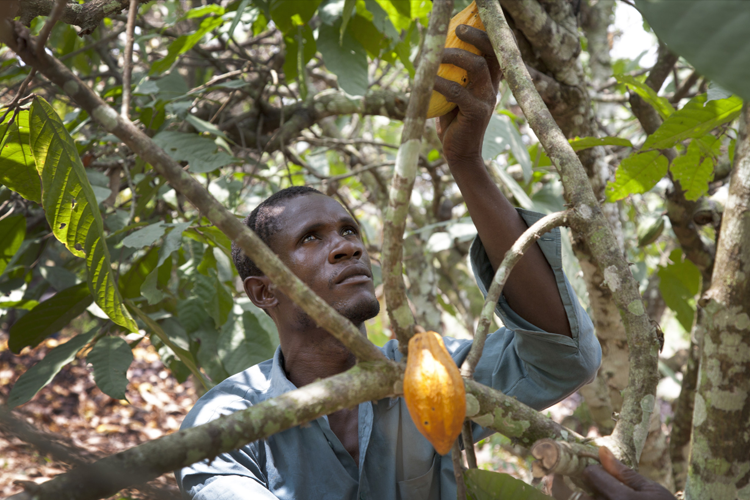Fierce competition in the UK retail market and a perceived fear of breaking competition law is preventing businesses from fixing low wages and incomes in their supply chains. Yet the people behind goods such as tea, cocoa and bananas, which are worth £34 billion to the UK economy suffer poor living conditions and an increasingly uncertain future.
New research from the Fairtrade Foundation released ahead of an industry roundtable event on 30 January 2019 shows businesses are near unanimous in the message that competition law is a barrier to taking collective action to tackle low farm-gate prices and wages. The research argues that collective action is required because businesses are afraid to act alone, due to the obstacle of first mover disadvantage.
The report, entitled “Competition Law and Sustainability: A Study of Industry Attitudes Towards Multi-Stakeholder Collaboration in the UK Grocery Sector”, investigates why, despite efforts and investment to make supply chains more sustainable, the industry has not come together to address the issue and concludes that the sector is constrained by fear.
The report has a set of key recommendations for the UK Government and calls on the Competition and Markets Authority (CMA) to issue clear guidance to private sector companies to allow them to work together to improve the incomes of farmers and workers in developing countries.
Michael Gidney, CEO Fairtrade Foundation, said:
“Millions of the farmers and workers behind some of our favourite groceries – tea, cocoa, bananas – are at the sharp end of trade, struggling with volatile commodity prices and the worsening effects of climate change.
“We’re calling on the government to seize this appetite for collaboration from the sector and encourage the largest players in retail to address the most pressing issue affecting our supply chains – poverty prices.
“The alternative that Fairtrade offers consumers shows that companies can respond to public demands to do better and they don’t have to act alone. However, the UK will not be able to do its bit to end global poverty and achieve the sustainable development goals unless everyone works together. It is time for reform and for the Government and the CMA to step up and unblock these barriers.”
Evidence shows that without progress to bridge the income gap in agriculture the number one goal of the United Nations’ Sustainable Development Goals ‘To end poverty in all its forms’ will not be achieved. Take for example, Côte d’Ivoire, where the average cocoa farmer earns less than £1 per day, well below the World Bank’s extreme poverty line of £1.40 per day. The Fairtrade Foundation argues that the UK Government, as one of the major drivers of the goals, has a responsibility to act.
Competition Law includes important regulations to protect consumers from harmful practices such as price-fixing but it also restricts any collaboration between competitors in relation to prices paid to farmers or wages paid to workers within a supply chain.
Fairtrade shows the industry would welcome guidance on this issue and calls on the Competition and Markets Authority (CMA) to provide clear policies so businesses can collaborate for sustainability purposes to address low farm-gate prices. It also recommends the CMA report on how competition law is affecting progress toward the SDGs and UN Guiding Principles on Human Rights.
This could have an immediate impact. In the cocoa sector, many major retailers and brands have invested significant resources, to the tune of $1billion investments in sustainability programmes. Fairtrade’s research in this area will be discussed at an industry roundtable event held in London on 30 January 2019.
This report is being published ahead of Fairtrade Fortnight, which will run from 25 February to 10 March, and marks the start of a three year campaign for Living Incomes to become a reality for farmers and producers around the world.
